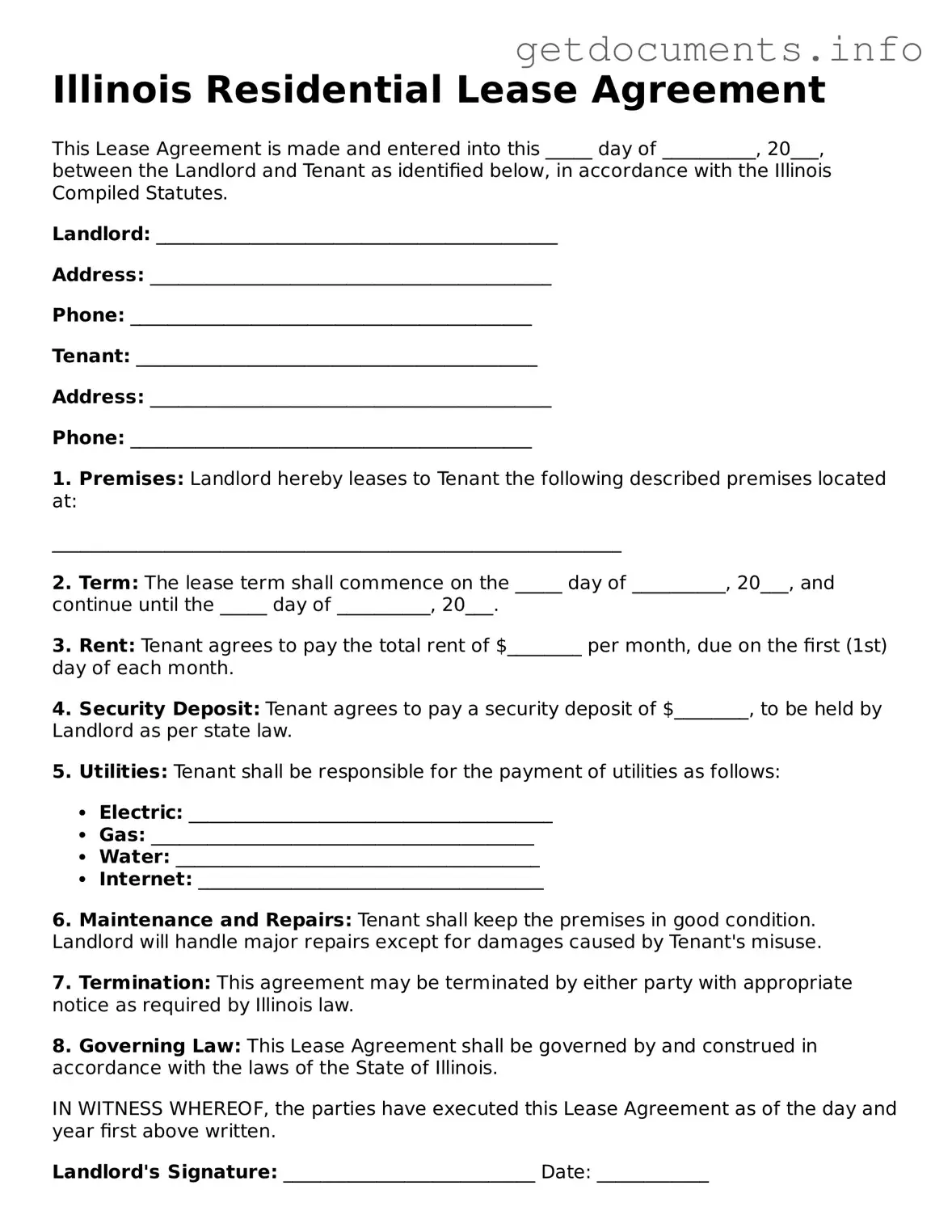Free Lease Agreement Template for Illinois
The Illinois Lease Agreement form is a legal document that outlines the terms and conditions between a landlord and a tenant for renting a residential property in Illinois. This form ensures that both parties understand their rights and responsibilities, providing clarity and protection throughout the rental period. For a seamless renting experience, consider filling out the form by clicking the button below.
Access Lease Agreement Editor

Free Lease Agreement Template for Illinois
Access Lease Agreement Editor
Got places to be? Complete the form fast
Fill out Lease Agreement online and avoid printing or scanning.
Access Lease Agreement Editor
or
⇩ PDF File
